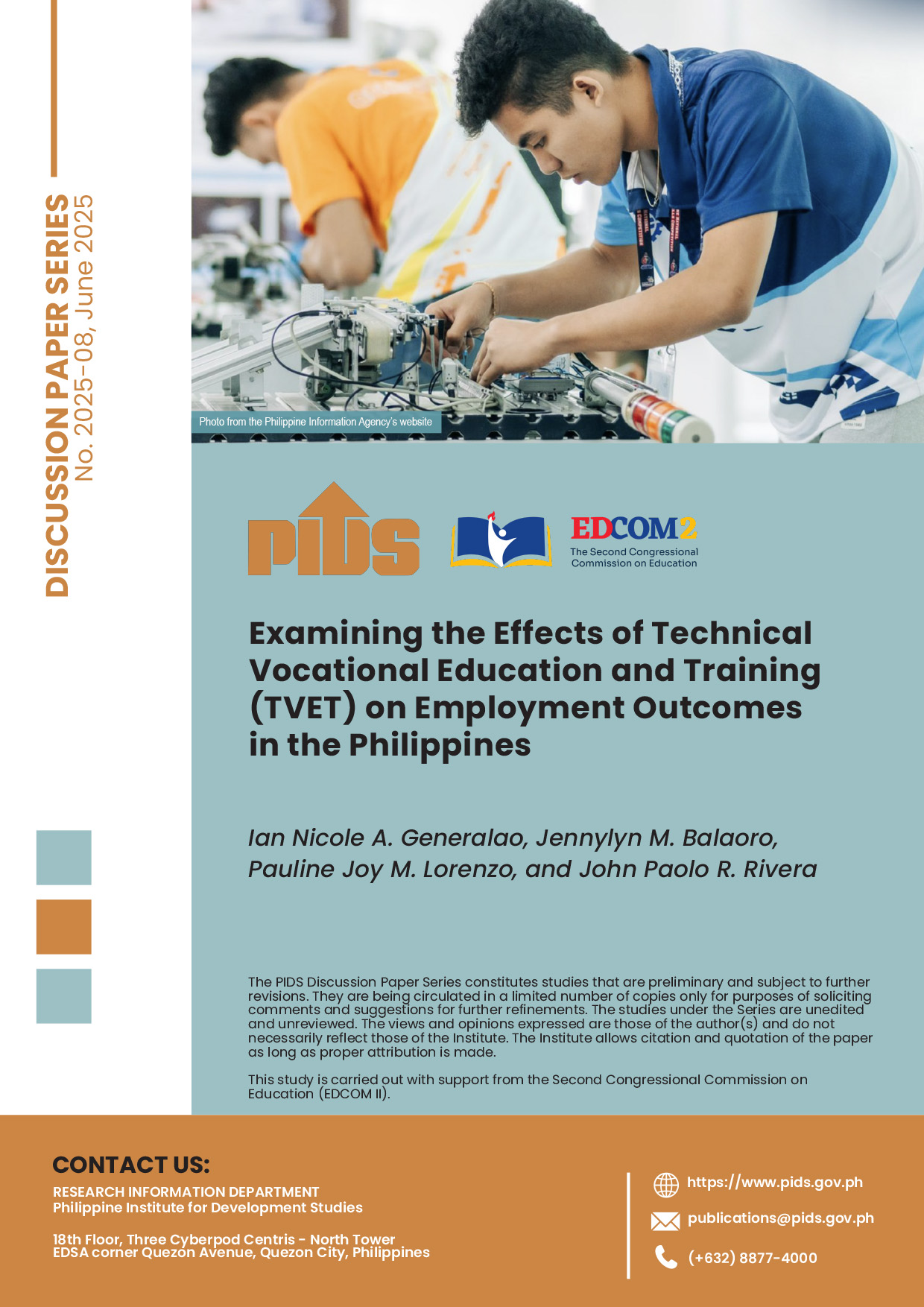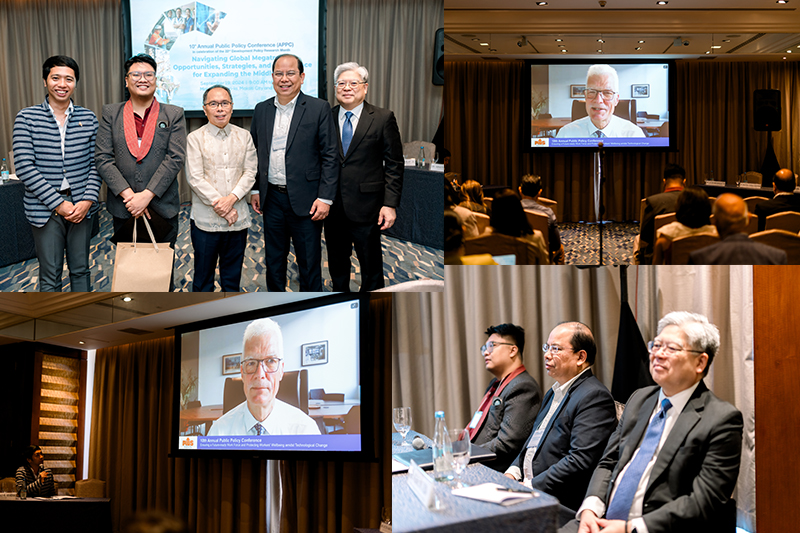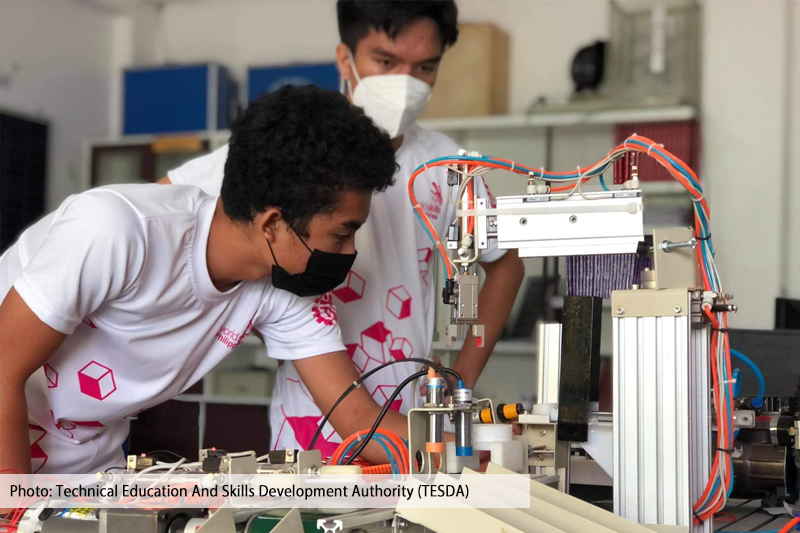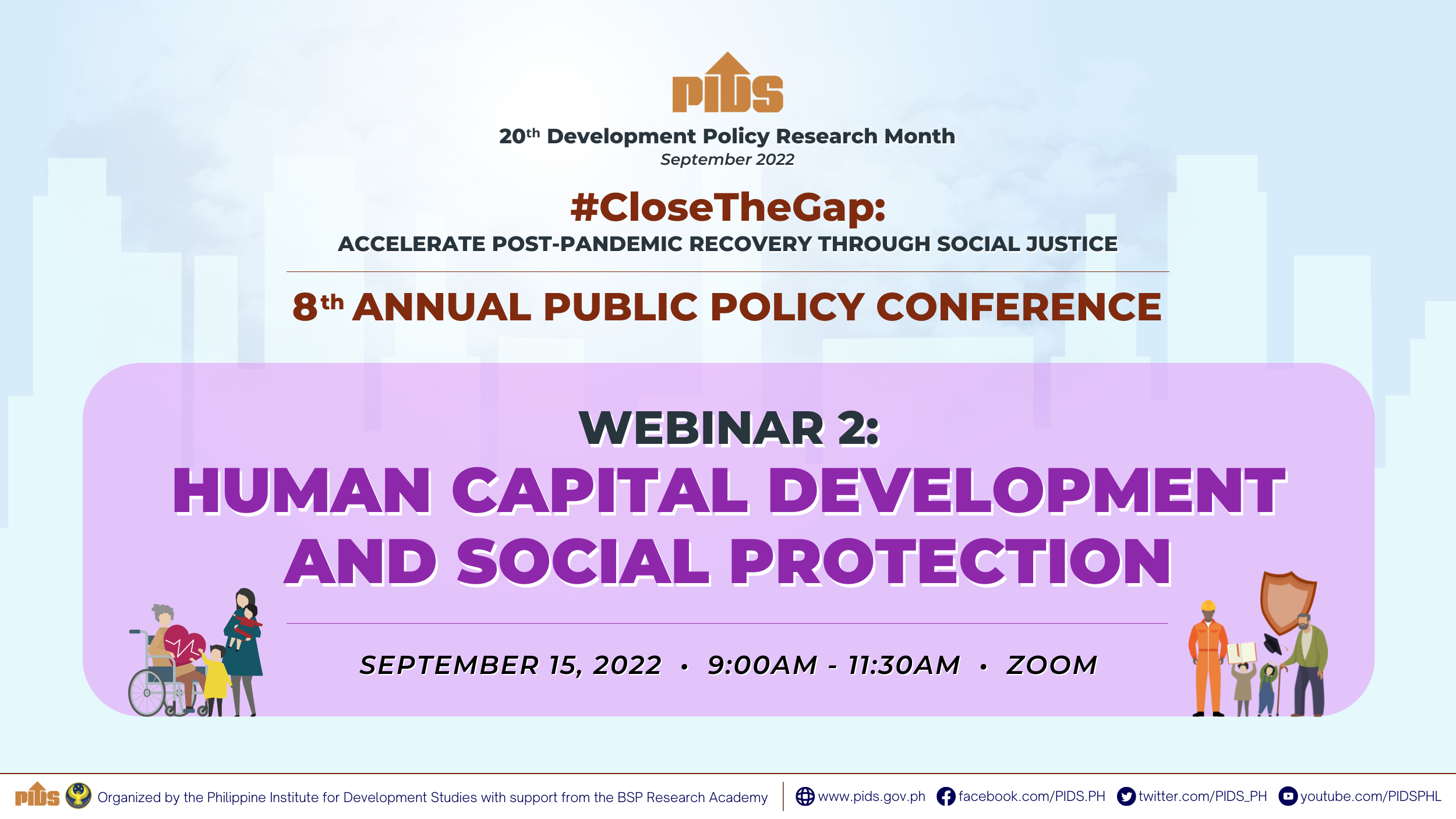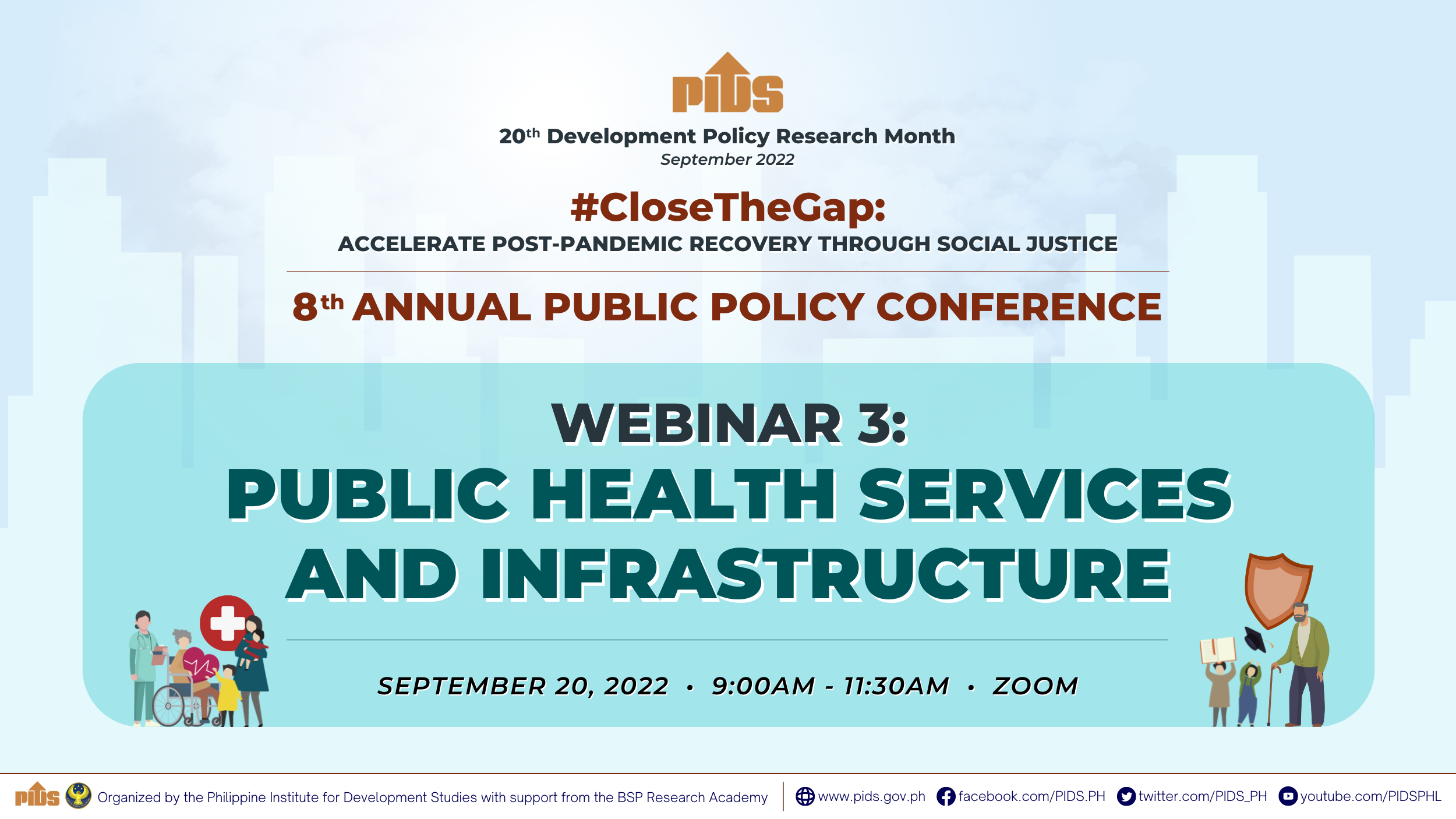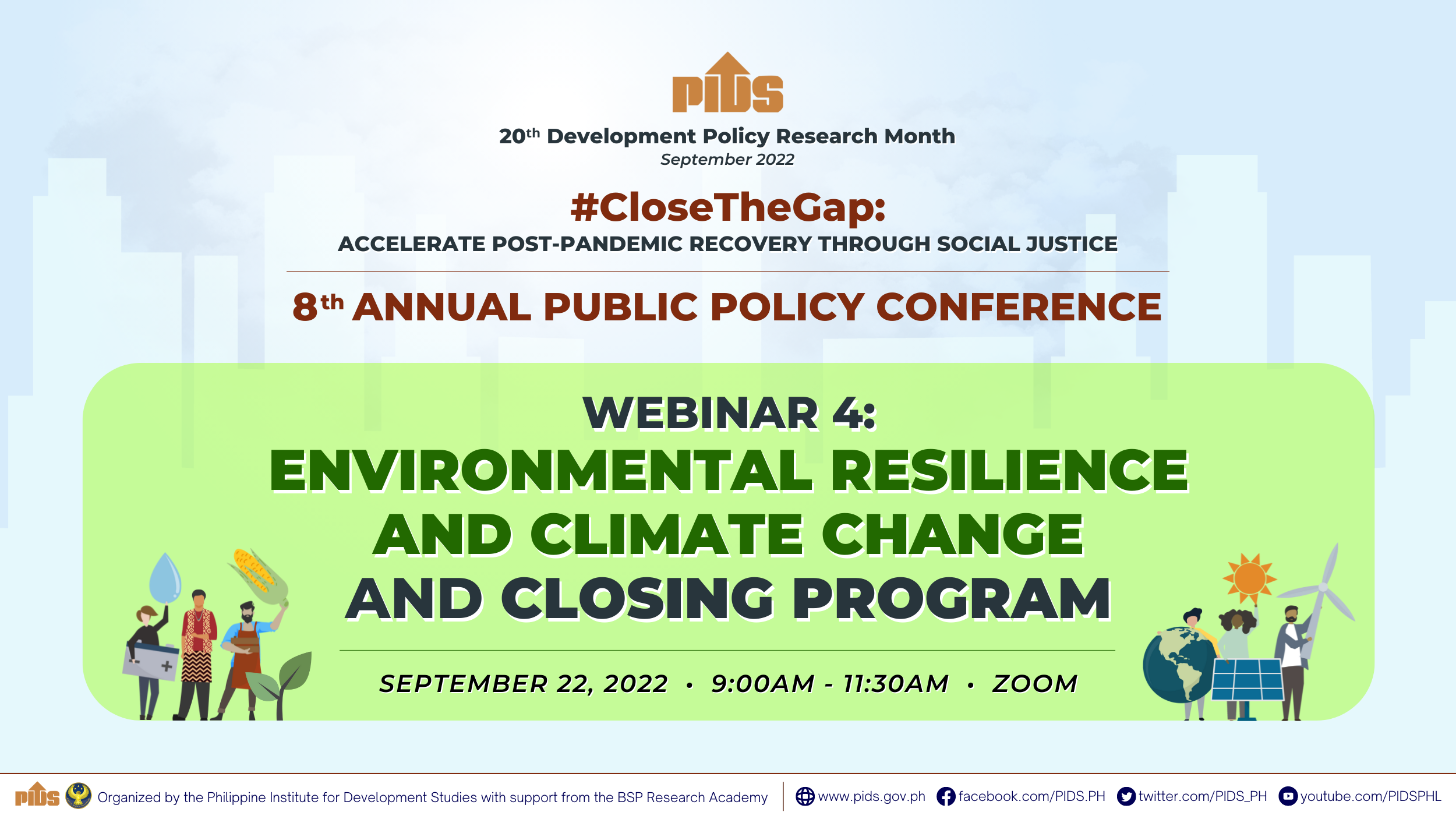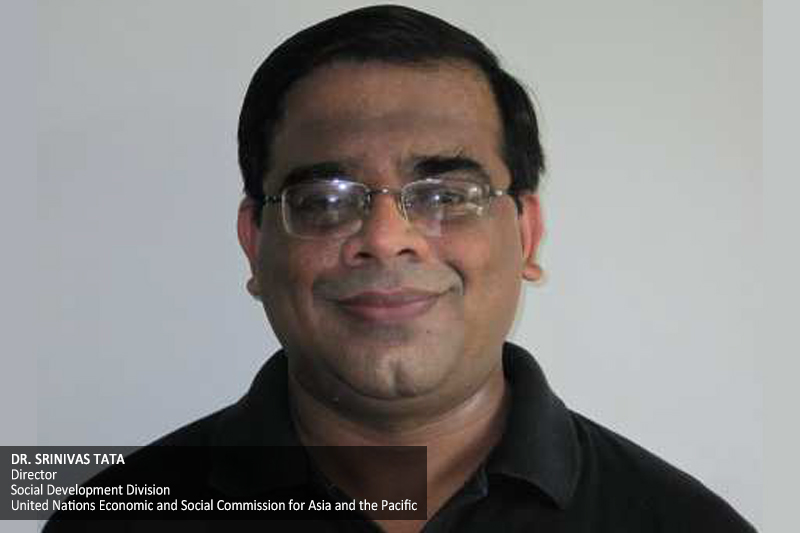
The COVID-19 pandemic exacerbates socioeconomic challenges and underscores the need for better social protection schemes in the Asia-Pacific region.
This was highlighted by Dr. Srinivas Tata, director of the United Nations Economic and Social Commission for Asia and the Pacific (UNESCAP)’s Social Development Division, during the last of the four-part webinar series of the 7th Annual Public Policy Conference (APPC).
While poverty in the Asia-Pacific region had dropped considerably over the past decades, Tata emphasized that it is still home to a quarter of the world’s extreme poor or the population living on USD 1.90 a day. In the Philippines, about 4.6 percent or 5 million people are still living on this amount or below the international poverty line.
He noted several causes of poverty, with the “lack of access to a decent job and adequate social protection” as the main contributors.
Another challenge is the high and widening inequalities and access to basic opportunities and services, such as water and sanitation, clean fuels, education, and digital technology (i.e., internet).
“Limited access to these and other fundamental services has an enormous impact on people’s resilience and life prospects,” he said.
The UNESCAP director also stressed that the high level of labor market informality is a huge barrier. According to him, almost 70 percent of workers or more than 1.3 billion people are trapped in irregular employment in the Asia-Pacific. He mentioned that most of these workers have no contracts, do not have access to stable salaries or social protection, and probably perform hazardous jobs.
Tata also noted that the governments’ investment in people is “insufficient”. According to him, low political commitment and lack of public support contribute to this issue.
“Investment in social protection, health care, and education are often seen as costs while building a bridge or [a] new road may be seen as an investment because the value is immediately evident. This view, as we know, is skewed. It is important to understand that investing in people has a huge return on the country’s development,” he pointed out.
Citing UNESCAP data, Tata said that a basic social protection cost would be 2 to 6 percent of a country’s gross domestic product for a package consisting of pension, child benefit, maternity benefit, and disability benefit.
“This amount is far lower than what many people would think of. As such, we believe it is an affordable cost to most countries in the Asia-Pacific,” he said.
Tata provided recommendations on how governments in the Asia-Pacific region could sustainably expand social protection in the long term.
One is for governments to reprioritize existing expenditures and look at increasing revenue.
He also urged governments to make social protection schemes universal as “this is the key to leaving no one behind and to reach those who need the support when they need it.” He added that adequate social protection should be given to women and informal workers.
Tata also emphasized the importance of new technologies in the efficient and effective delivery of social protection programs and services.
“New technologies create major opportunities to improve the delivery of social protection schemes. They can facilitate social identification and registration, improve the integration and increase the efficiency of schemes, and reduce the risk of errors,” he explained.
The APPC is the main and culminating activity of the Development Policy Research Month celebration led by the Philippine Institute for Development Studies every September. This year’s theme is “Reset and Rebuild for a Better Philippines in the Post-Pandemic World”, or in Filipino, “Muling Magsimula at Magtayo Tungo sa Mas Matatag na Pilipinas Pagkatapos ng Pandemya”. ###
Watch the video of this seminar at https://www.facebook.com/PIDS.PH/videos/1434336450295683 or https://www.youtube.com/watch?v=qhh4E8ynZPw.
For more videos of PIDS events, go to https://www.pids.gov.ph/videos.
This was highlighted by Dr. Srinivas Tata, director of the United Nations Economic and Social Commission for Asia and the Pacific (UNESCAP)’s Social Development Division, during the last of the four-part webinar series of the 7th Annual Public Policy Conference (APPC).
While poverty in the Asia-Pacific region had dropped considerably over the past decades, Tata emphasized that it is still home to a quarter of the world’s extreme poor or the population living on USD 1.90 a day. In the Philippines, about 4.6 percent or 5 million people are still living on this amount or below the international poverty line.
He noted several causes of poverty, with the “lack of access to a decent job and adequate social protection” as the main contributors.
Another challenge is the high and widening inequalities and access to basic opportunities and services, such as water and sanitation, clean fuels, education, and digital technology (i.e., internet).
“Limited access to these and other fundamental services has an enormous impact on people’s resilience and life prospects,” he said.
The UNESCAP director also stressed that the high level of labor market informality is a huge barrier. According to him, almost 70 percent of workers or more than 1.3 billion people are trapped in irregular employment in the Asia-Pacific. He mentioned that most of these workers have no contracts, do not have access to stable salaries or social protection, and probably perform hazardous jobs.
Tata also noted that the governments’ investment in people is “insufficient”. According to him, low political commitment and lack of public support contribute to this issue.
“Investment in social protection, health care, and education are often seen as costs while building a bridge or [a] new road may be seen as an investment because the value is immediately evident. This view, as we know, is skewed. It is important to understand that investing in people has a huge return on the country’s development,” he pointed out.
Citing UNESCAP data, Tata said that a basic social protection cost would be 2 to 6 percent of a country’s gross domestic product for a package consisting of pension, child benefit, maternity benefit, and disability benefit.
“This amount is far lower than what many people would think of. As such, we believe it is an affordable cost to most countries in the Asia-Pacific,” he said.
Tata provided recommendations on how governments in the Asia-Pacific region could sustainably expand social protection in the long term.
One is for governments to reprioritize existing expenditures and look at increasing revenue.
He also urged governments to make social protection schemes universal as “this is the key to leaving no one behind and to reach those who need the support when they need it.” He added that adequate social protection should be given to women and informal workers.
Tata also emphasized the importance of new technologies in the efficient and effective delivery of social protection programs and services.
“New technologies create major opportunities to improve the delivery of social protection schemes. They can facilitate social identification and registration, improve the integration and increase the efficiency of schemes, and reduce the risk of errors,” he explained.
The APPC is the main and culminating activity of the Development Policy Research Month celebration led by the Philippine Institute for Development Studies every September. This year’s theme is “Reset and Rebuild for a Better Philippines in the Post-Pandemic World”, or in Filipino, “Muling Magsimula at Magtayo Tungo sa Mas Matatag na Pilipinas Pagkatapos ng Pandemya”. ###
Watch the video of this seminar at https://www.facebook.com/PIDS.PH/videos/1434336450295683 or https://www.youtube.com/watch?v=qhh4E8ynZPw.
For more videos of PIDS events, go to https://www.pids.gov.ph/videos.

